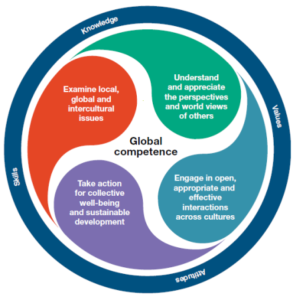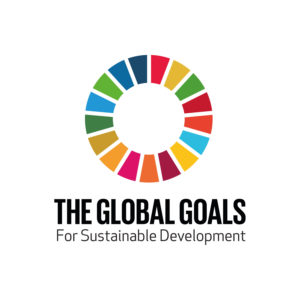What is Global Education?
Global Education is:
Education for Global Citizenship
Education for Sustainable Development
Education for the UN Sustainable Development Goals
Transformative Education for Sustainability and Citizenship.
“The world is changing – education must also change. Societies everywhere are undergoing deep transformation, and this calls for new forms of education to foster the competencies that societies and economies need, today and tomorrow. This means moving beyond literacy and numeracy, to focus on learning environments and new approaches to learning for greater justice, social equity and global solidarity. Education must be about learning to live on a planet under pressure. It must be about cultural literacy, on the basis of respect and equal diginity, helping weave together the social, economic and environmental dimensions of sustainable development.” (Irina Bokova. Director General of UNESCO. Rethinking Education: Towards a Global Common Good. 2015.)
The global population is on the move like never before, humans are becoming more and more connected through trade and technology, and the natural environment is under increasing pressure. These trends point to a future where citizens need to be culturally competent, globally aware, and skilled to live sustainably. Preparing ourselves for this future requires intentional, globally-focused educational practices in order to give us the skills, attitudes and knowledge to live well in a changing and interconnected world.
Global Education describes an approach to education that recognises the interconnectedness and interdependence of all human activity, and is founded on the values of human dignity and respect for cultural diversity.
“It is inspired by a humanistic vision of education and development based on human rights and dignity; social justice; inclusion; protection; cultural, linguistic and ethnic diversity; and shared responsibility and accountability”. (Incheon Declaration. World Education Forum. 2015)
Global Education is Education for Global Competence (OECD)
Global Competence was developed by the OECD as the model for the 2018 international PISA testing.
“PISA conceives of global competence as a multidimensional, lifelong learning goal. Globally competent individuals can examine local, global and intercultural issues, understand and appreciate different perspectives and world views, interact successfully and respectfully with others, and take responsible action toward sustainability and collective well-being.” (Andreas Schleiche, Director, Directorate for Education and Skills, OECD. “Educating Our Youth to Care About Each Other and the World”, 2017)
The framework defines Global Competence as ” the capacity to examine local, global and intercultural issues, to understand and appreciate the perspectives and world views of others, to engage in open, appropriate and effective interactions with people from different cultures, and to act for collective well-being and sustainable development.” (PISA 2018 Global Competence) This growing international emphasis on global competencies locates learners of all ages as active participants in a diverse, interconnected and interdependent global community characterised by
- culturally diverse societies;
- changes to labour and employment in rapid
 ly changing economic and technological contexts;
ly changing economic and technological contexts;
- a complex global information, communications and media environment
- the need for collective action in response to worldwide challenges to human well-being, sustainability and development
“Why do we need global competence?
- to live harmoniously in multicultural communities
- to thrive in a changing labour market
- to use media platforms effectively and responsibly
- to support the Sustainable Development Goals ”
Global Education is Global Citizenship Education (GCEd, UNESCO)
Global education develops the values, predispositions, skills and understandings that enable individuals to participate in the interconnected world as aware, active and ethical agents or global citizens. Global education promotes open-mindedness, leading to new thinking about the world and a predisposition to take action for change. It advocates positive values and assists us in taking responsibility for our actions. Overall, it encourages us to see ourselves as global citizens who can contribute to a more peaceful, just and sustainable world.
What is Global Citizenship?
- a sense of belonging to the global community and common humanity (solidarity, collective identity and responsibility on a global level)
- civic actions to promote a better world and future
- based on universal values of human rights, democracy, non discrimination and diversity.*
*Schools in Action: Global Citizenship for Sustainable Development: A Guide for Teachers (UNESCO, 2016)
Global Education is Education for Sustainable Development (ESD, UNESCO).
Education for Sustainable Development recognises that we need to make fundamental changes to how we coexist with each other and with our environment.* It develops skills that enable us to live and work together to meet present and future challenges collaboratively and constructively and to create more sustainable and resilient societies. It focuses on issues such as climate change, biodiversity, disaster risk reduction, water, cultural diversity, sustainable urbanisation and sustainable lifestyles. To find out more about EDUCATION FOR SUSTAINABLE DEVELOPMENT, including education to promote the UN SDGS CLICK HERE
What is Sustainable Development?
- a “development that meets to the needs of the present without compromising the ability of future generations to meet their own needs” (Brundtland Report, Our Common Future)
- addresses social, economic and environmental issues*
*Schools in Action: Global Citizenship for Sustainable Development: A Guide for Teachers (UNESCO, 2016)
Global Education is Education for the UN Sustainable Development Goals (UN SDGS)
Global education acts towards achieving United Nations Sustainable Development Goal 4, Target 4.7., by supporting teachers and learners to “acquire the knowledge and skills needed to promote sustainable development, including, among others, through education for sustainable development and sustainable lifestyles, human rights, gender equality, promotion of a culture of peace and non-violence, global citizenship and appreciation of cultural diversity and of culture’s contribution to sustainable development.”
Sustainable Development Goal 4
Ensure inclusive and equitable quality education and promote lifelong learning opportunities for all.
Target 4.7.By 2030, ensure that all learners acquire the knowledge and skills needed to promote sustainable development, including, among others, through education for sustainable development and sustainable lifestyles, human rights, gender equality, promotion of a culture of peace and non-violence, global citizenship and appreciation of cultural diversity and of culture’s contribution to sustainable development.
Measuring Progress on Target 4.7. The global indicator established for Target 4.7 seeks to measure the extent to which GCED and ESD, including gender equality and human rights, are mainstreamed in national education policies, curricula, teacher education and student assessments.
Global Education is Transformative Education for Sustainability and Citizenship. (UN; LSF Canada)
“Education must be transformative and bring shared values to life. It must cultivate active care for the world and or those with whom we share it” (Ban Ki-Moon, UN Secretary-General, 2016)
Global Education recognises and promotes our ability to envisage and participate in actions for positive change, towards the creation of fairer and more inclusive societies and a more sustainable future for all; it empowers us to TRANSFORM OUR WORLD. You can find out more about Transformative Education for Sustainability and Citizenship HERE.
